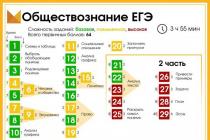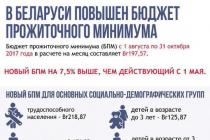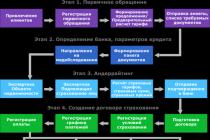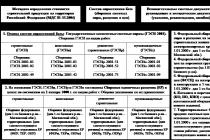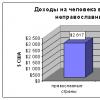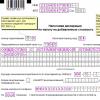Are you looking for a loan donor who provides its services in Moscow without requiring prepayment? Do you need urgent help? In this article you will find all the information you need.
So, first, let's talk about who a loan donor is: this is a person who takes on someone else's loan, applying for it in a bank or other financial organization. At the same time, for his service he assigns a certain monetary reward, in other words, a “kickback”, which can be from 30% of the loan amount and higher, conditions vary greatly from person to person.
When you borrow a credit card, loan or mortgage from a bank, lenders look at three pieces of information to assess whether they will make money from you - your application form, any previous dealings they have had with you, and, importantly, information about your credit reference files.

Most regular financial transactions and credit relationships you have are listed in these files, although student loans are not included. So the only way lending, credit card or mortgage providers will know you have a student loan is if they choose to ask for application forms. They can do this, and it does happen, but in general this is only for high value transactions like mortgages.
In addition, if you need money urgently, you can get them without any problems. At the same time, if you strictly follow the terms of the contract and make all payments on time and in full, you will also correct your history.
Schemes for obtaining loans have gained unprecedented momentum, people’s debt load is growing, banks are increasingly refusing to approve applications. However, this does not reduce the demand for loans. If intermediary services, for example, brokerage, have been known for a long time, then credit donation appeared relatively recently. This is a new type of service when several additional steps appear in the “borrower-loan” scheme.
In many ways, although the impact of taking out this loan is less than the fact that it is borrowing itself and reduces disposable income from repayment much more. So if you're trying to figure out what impact this will have, imagine that you simply had a salary reduction in the amount you would be paying for the loan - that's how lenders see it basically.
You're more likely to pay off this loan within 30 years before wiping it out than a secured loan
When you do the math and add interest since repayment is fixed based on profit, it turns out that only very high earners will clear it 30 years before the debts are discharged. The Postgraduate Master's loan, however, is a much smaller amount. And although there are lower payments, the math shows that you're more likely to clear it within 30 years.
Donors provide an opportunity for clients with poor records, criminal records, low official income, etc. They do this, of course, not for free. For such convenience, the client overpays a large amount, 2-3 times the loan received. Even despite this, the services of credit donors are in demand on the market, although they are illegal.
This is important to consider as it means, unlike undergraduates, where the 'price' of what you borrow is often unrelated to what you repay, postgraduate loans are more closely related - and you need to add interest on top. However, there are a number of key factors that influence this.
The higher the potential income, the more likely you are to pay it off in full within 30 years. The younger you are, the more likely you are to pay it off within 30 years. The less you borrow, the more likely you are to pay it off within 30 years.
Who is a loan donor?
This is an ordinary person with a positive credit history, a permanent job, a high income - exactly the type of client that banks like. He takes out a loan for himself and transfers the loan funds to a client who cannot take out a loan himself.
The terms of such a transaction are regulated by an agreement, the terms of which must be observed by all parties. Most often, donors work through intermediaries, which are organizations. Organizations are recruiting donors and looking for clients. For the donor, such an organization will be protection against non-payment of debt by the borrower. If the client does not pay the loan, the intermediary will pay off the debt in order to maintain a positive credit history for the donor, and then the debt will be “extorted,” sometimes in the literal sense of the word, from the negligent client. Debt collection methods are no different from collection methods and can be more severe.
You Can Pay Back Your Student Loans Early, But Should You Do Another Thing?
You have the right to pay off your student loan early - even while you're studying if you want, or, as is more likely, overpay after studying to clear it out faster. However, this doesn't mean you have to pay it off early. But just as important is that your payments here are based on what you earn - great insurance if you lose your job or can't work as you don't have to repay it. Commercial loans don't do this.
So if you're planning on future borrowing, for example for a mortgage or car loan, it's worth asking yourself whether you should pay it off, only to then have to borrow back at a higher rate later. And even if it seems like your will, changing circumstances can affect it. Therefore, by overspending, you could simply be paying money that you would never need to repay.
Where can I find a loan donor?
Anyone you know or close relative can become a loan donor. This is the best solution for you in terms of price. However, if you do not pay the loan later, your relationships with family and friends can be ruined. You can find a donor in your city by posting an ad on a special credit notice board.
Bus stops and message boards on the Internet are full of headlines asking for help in getting a loan or a loan. As a rule, such requests are submitted by brokers/agents.
For most potential applicants, the essence of the services they offer is more or less clear, but the specifics of the activities of a credit donor are shrouded in secrecy. Who is a loan donor? How to get a donor loan? What do banks and law enforcement officials think about this? Let's figure it out.
Who is a credit donor (CD)?
For most citizens, obtaining a cash loan is a simple procedure. However, there is a category of borrowers for whom obtaining a loan from a bank is virtually impossible. Basically, these are borrowers with a damaged CI, people with a criminal record, those who are not officially employed or who do not have registration in the Russian Federation. In general, all those who do not meet the bank’s requirements. It is at this moment that numerous sharagas appear who, for a certain fee, offer to obtain a loan through an intermediary, that is, a donor.
Donor loan scheme
There can be several scenarios for the development of events:
- Contacting a special company that provides “donor” services
- Direct cooperation between the CD and the money seeker
First scheme: for example, you want to get a loan from a bank, but you cannot do this for one of the above reasons. Then you turn to company “X” for help, where they select a donor for you. The selected CD meets all the requirements of the selected bank, has a good CI, registration, work experience and even the necessary documents from work. The parties enter into an agreement under which the donor receives a loan and takes 10-30% of the loan amount as a reward, and gives the remaining money to company “X”. She, in turn, also takes 5-10% of the amount as payment for the services provided and gives the remaining money to the applicant, that is, you.
Thus, the applicant receives, at best, 50-60% of the amount originally issued for the loan, and in addition, monthly loan payments and interest from the bank.
After receiving the funds, you write a promissory note in the name of company “X”, where you undertake to repay the donor’s loan in full. To make the situation realistic, you do not pay the loan yourself, but transfer payments to company “X”, which gives them to the real borrower - the loan donor. It is he who makes monthly payments to the bank's cash desk. This is partly done for reinsurance. So that if something happens, “a mosquito won’t sharpen your nose.”
 In fact, the scheme is thought out to the smallest detail and everyone wins: you, the applicant, get the money you need, albeit at crazy interest rates. Company "X" is in chocolate after receiving its reward. A looks like a reliable borrower to the bank, while having a reward for the loan issued to himself.
In fact, the scheme is thought out to the smallest detail and everyone wins: you, the applicant, get the money you need, albeit at crazy interest rates. Company "X" is in chocolate after receiving its reward. A looks like a reliable borrower to the bank, while having a reward for the loan issued to himself.
The second scheme for direct cooperation is almost the same. Except that the applicant will have to look for a real loan donor for quite a long time. Fraud in this area is off the charts, on both sides. You can also save on commissions for the company, and the promissory note will have to be written in the name of the borrower.
This option is more profitable for the applicant, but not for the CD. The intermediary company can guarantee the donor that the applicant will pay the loan of his own free will or “under pressure.”
In the case of direct cooperation, the donor will have to independently extract money from the applicant to pay for the loan if he refuses the debt. If you can’t get the money out, the CD will have one option left - go to court with a promissory note to collect the money through bailiffs.
Requirements for applicants
Surprisingly, not everyone can use the services of a donor. Companies put forward certain conditions and requirements for applicants. For example, they will not “work” with a client who meets all the bank’s requirements and can independently, that is, without unnecessary help, apply for a loan in his name. There are also unspoken minimum amounts for obtaining a loan through a donor. For example, it is unlikely that anyone will want to cooperate with an applicant for a loan amount of 50-70,000 rubles. As a rule, the lower threshold starts from 100 thousand.
Advantages and disadvantages for the borrower
As the main advantages, companies providing donor services put forward the following arguments:
- Possibility of receiving money with a damaged credit history and open enforcement proceedings, persons without citizenship or registration, citizens with a criminal record, etc.
- 100% receipt of money. Even if the donor is denied a loan from one of the banks, you can apply for a loan from another organization or replace the donor.
- Anonymity in obtaining a loan in front of relatives, employers, there will be no marks in the BKI
When a person who finds himself in a difficult financial situation has no other option, then a CD can really be a way out of the current situation. However, every applicant should know that such transactions are illegal and threaten all parties with criminal liability under Article 159 of the Criminal Code of the Russian Federation.
Each borrower, when signing a loan agreement, indicates that he is acting in his own interests and is taking money exclusively for himself, for his own needs and purposes. In practice, he issues a loan for a stranger, thereby violating his obligations under the contract. Moreover, with all the costs (payment for intermediary services, donor remuneration, bank interest), the borrower overpays by about 100%. Is it worth it to make such an overpayment and risk your freedom for a loan at any cost?
Blatantly fraudulent schemes
Naturally, with credit donation there is a high risk of fraud, especially in the case of direct cooperation. It’s simple - you take out a loan, and the person who has to pay it does not pay it and hides (gets lost) In this case, there are 2 options to protect yourself - either take the person’s property as collateral, or run it through different databases: different scammers, debtors, criminals. In any case, you borrow money at your own risk.
Or complete absence. What way out of this situation is there? First of all, you can find an intermediary who took out a loan for himself and simply transferred the funds. This procedure is called credit donation. It is extremely popular around the world. It should be said that the demand is constantly increasing, as the requirements of banks are constantly becoming stricter.
How to find the right person?
You have two options: act independently or turn to an intermediary. What advantage does the first option have? You can save some money on the services of a less-than-needed specialist. But they turn to an intermediary quite often because they need to save time. Demand leads to the emergence of a large number of scammers. And the intermediary will help reduce risks. Much depends on the locality where the borrower is located.
In addition, intermediaries know the credit donation market; they have a special database of scammers that you should never contact. Just look at local forums, groups, social networks. Are you ready to trust local “donors” and take serious risks? Then you won't need to turn to intermediaries.
What are the advantages of credit donation?
Many banks have many very serious requirements. Very strict age limits. Certain banking institutions do not issue loans to persons under the age of 25 and over 60. This situation often cuts off a huge number of potential borrowers. Of course, you will have to overpay a little for help, but you can choose the most suitable bank with favorable conditions. With the support of the “donor”, bank employees will definitely issue a loan. You can make an appointment in advance to choose the most optimal offer on the loan market.
It should also be said: many “donors” are well aware of how the banking sector works. If this is a decent person, then he will conclude an agreement on the most favorable terms. For whom might credit donation be the only way to receive borrowed money? Primary for those who work informally. The main requirement of banks– provision of income certificate. Other supporting documents are required, which are extremely difficult to obtain. You can also make a lot of mistakes by taking out expensive insurance. Therefore, the service is often used by people who have little understanding of banking rules.
Are there any disadvantages to the service?
There are serious disadvantages. The first disadvantage that you will definitely encounter is the difficulty of finding the right person. The donor may be suitable, but the candidate will flatly refuse to cooperate. It is especially difficult to find a suitable candidate for those who have never used such services. Clients must understand the seriousness of the risks; the described procedure is officially illegal.
Financial expert Vladimir Kuzmenko said: “Contracts contain many pitfalls, everything needs to be carefully double-checked. Additionally, there is a risk that the deal will fail.”
In addition, we must not forget that you will have to pay for the credit donation. Now the price is increasing significantly. The current situation is connected with the growing popularity of the service. Therefore, many who find out the cost of mediation simply refuse to cooperate. The cost includes the “donor’s” personal time and existing risks. If you take all this into account, you will understand that the price is quite reasonable. Let us summarize the existing shortcomings:
1. High risk.
2. You will often have to seriously overpay.
3. Finding a suitable intermediary is quite difficult.
Conclusion
Statistics show that the proportion of spoiled ones is constantly increasing. The main reason is the economic situation. Experts predict a massive increase in credit donation; one donor can take out several loans at once. They expect the share of brokered loans described to rise to 5% or even higher. How to fight? Just make the requirements for obtaining a loan simpler, preserve the history after the first delay, and meet your clients halfway.
Credit donation: advantages and disadvantages was last modified: April 4, 2017 by Alexander Nevskiy
Loans up to 100,000 rubles
- up to 100,000 rubles
- 1 year.
Consumer loans
- 50,000 - 3,000,000 rubles
- up to 7 years
- 1–25 million rub.
- 6–30 years
How and where to borrow money when your credit history is completely damaged? Who should I contact for help in obtaining a loan? Will credit institutions give a loan with a bad CI? Who are loan donors? Should you trust them? How can they help the borrower?
Credit donors - who are they?
A credit donor is a person with a positive credit history and a good reputation in several large banks, who is ready to take out a loan for another person.
Credit donation appeared relatively recently in Russia, but has already become a fairly common service in the financial world.
Borrowers who, for one reason or another (bad CI, lack of citizenship, criminal record, etc.) cannot get a loan from a bank or other financial institution, are forced to turn to loan donors. Since in such a situation only donors can provide real assistance, brokers and other intermediaries will be powerless.
How does a loan donor work?
Loan donors work directly or through special organizations that provide donor services when applying for a loan.
It would be better for the borrower to contact an organization where they can select a loan donor with a good reputation in a particular bank. However, the cost of donor services in such an organization will significantly exceed direct cooperation without an intermediary. You can find a credit donor, for example in Moscow, on your own, you just have to submit an ad on the Moscow credit notice board.
Scheme of work
All loan donors work according to the same scenario: they take out a loan for themselves in the amount needed by the customer, and give the received loan funds to the client for a fee. At the same time, the customer himself guarantees loan payments according to the payment schedule, without delays or delays, so that the donor’s credit history remains positive.
If a potential client contacts an organization specializing in the selection of loan donors, he will first need to undergo a short interview, fill out a questionnaire, specify the required amount and term, and state the maximum permissible monthly payment. You may need to name a specific bank, discuss fees for the service, etc.
After this, the organization selects a suitable donor, one or more. He fills out an application for a loan at the bank chosen by the client, collects the necessary package of documents, etc. If the decision is positive, the loan donor enters into a loan agreement with the bank and receives money.
Having received a loan, the donor takes an agreed percentage as a reward, and transfers the remaining amount to the organization, which also takes a commission from these funds for selecting a suitable loan donor. The remaining amount is given to the customer.
Having received the cash, the customer writes a receipt in which he guarantees to repay the donor’s loan in full or return the funds.
The receipt also indicates the method of return: cash to the organization, to the donor, or self-payment of the donor loan by making monthly payments to the specified account.
Should you trust a loan donor? How legal is this?
Credit donation is prohibited in Russia. Moreover, such an act is regarded as fraud and is prosecuted in accordance with Article 159 of the Criminal Code of the Russian Federation. In this case, all parties to the transaction (customer, donor, selection organization, etc.) will suffer if disclosed.
It is not for nothing that the loan agreements of all banks contain a clause stating that the client acts exclusively in his own interests and applies for a loan for his own purposes and needs. As a rule, it is under this item that the borrower’s additional signature is placed.
As for trust in credit donors, the borrower in this case does not risk anything, except perhaps running into a scammer and paying money as an advance payment.
In fact, those at risk are credit donors who agree to take out a loan for another person. What if the customer then does not pay the loan? After all, collectors and the bank will demand money from the borrower - the loan donor. Not to mention damaging your credit history for life.
The main trump card and protector of the credit donor remains only the customer’s receipt, in which he guarantees to return the money. To recover funds against the receipt, the donor will have to go to court, because a priori he cannot go to the police. Otherwise, he will have to admit to committing the crime and suffer the appropriate punishment.
Loan donor commission
 The customer will have to fork out for the great risk that credit donors take on. In most cases, the donor takes 20-30% of the loan amount, but only after receiving the loan. When providing this type of service, no advance payment is required.
The customer will have to fork out for the great risk that credit donors take on. In most cases, the donor takes 20-30% of the loan amount, but only after receiving the loan. When providing this type of service, no advance payment is required.
If the customer contacts the agency, he will have to pay about 5-10% of the loan amount for their services. As a result, the customer will receive only 60-70% of the total loan amount, but will have to pay for the whole 100%, and even with bank interest.
What happens if the customer does not pay the donor's loan?
It all depends on how the customer cooperates with the donor. If directly, without intermediaries and agencies, then the donor will have one chance to return his funds by going to court with a receipt and a claim to recover funds from it.
If the borrower contacted an agency or organization that provides credit donor services, then it is likely that the matter may not reach the point of judicial collection.
As a rule, such organizations have something like a security service, collectors and bouncers rolled into one. The brave guys will put pressure on the customer until he returns the money. Or the agency can, with the same receipt, turn to specialized collection agencies for help.
The last option is to file a lawsuit and enforce collection through bailiffs.
The term “credit donation” is still new to many people, despite the fact that this service is widespread in the modern world. Donation is an assignment of a loan, and the unprotected party is the borrower himself. For this reason, the prospects for the development of credit donation in Russia are very vague.
Who are loan donors?
Credit donors are private investors who, by prior agreement, take out a loan from a bank in their name, but transfer the borrowed funds to the “customer” (the person who needed the loan).
Moreover, the obligation to repay the debt according to the payment schedule must be fulfilled not by the donor himself, but by the person who required the loan.
There are a lot of reasons why donor services are in demand; banks mainly refuse borrowers due to... The credit donor simply issues a loan to himself, and the customer of the service will need to repay it.
Naturally, such services are not free; usually a commission is charged after the actual receipt of cash on credit. The amount of such commission may vary from 10 to 50% of the principal amount.
The following may provide donor loans:
- private individuals, according to the agreement reached, these can be both strangers and close relatives of the customer;
- special agencies involved in the selection of loan donors.
It is worth noting that in both of these cases, the borrower will be an individual, since the documents are submitted to the bank by the borrower himself, and not by his intermediaries.
Donor loan - scheme
 The principle of obtaining a donor loan occurs in stages:
The principle of obtaining a donor loan occurs in stages:
- Searching for a reliable agent or direct loan donor. Nowadays it is very difficult to find a reliable intermediary who is not a scammer.
- Read the terms and conditions. At this stage, the client’s needs are clarified, as well as his solvency. When contacting the agency, the client will need to fill out a special form; no originals or copies of documents should be required until the conclusion of the cooperation agreement. Before concluding a transaction, the client is informed about the terms of the possible loan and the size of the commission.
- Selection of a loan donor. As a rule, the agency enters into a separate agreement with the credit donor, which stipulates the terms of cooperation, as well as the rights and obligations of both parties. It happens that to collect the entire amount you need not one, but several loan donors. It is not always easy to find a borrower living in the same city as the client. The loan processing period can take 5-8 days, but there are also accelerated schemes when funds are issued within 2-3 days.
- Conclusion of an agreement. An agreement on the provision of services is initially signed between the client and the agent, only after which the loan donor can submit applications to banks. After the loan is approved, the borrower (donor) must sign an agreement with the bank stating that he undertakes to make payments according to the schedule.
- Distribution of commissions. Funds are issued to the borrower (donor) either in cash or transferred to a card account. From this amount, he immediately takes a set commission (20-30%) of the amount. Next, the remaining amount is transferred to the agent’s account, from which a commission is also charged, its size is negotiated when signing a cooperation agreement with the customer (usually 7-10% of the amount).
- Transferring money to the client. The agent transfers the remainder of the amount (loan body minus commission) to the customer. It is mandatory to sign a transfer and acceptance certificate at the time of cash transfer.
- As a guarantee, the client writes a receipt stating that he is obliged to repay the loan issued to another person (donor). This receipt is not notarized, but at the client’s discretion, he can take several witnesses with him to act as a guarantor.
Based on the above, we can summarize that a donor loan is quite expensive. Not only does repaying the loan imply an overpayment, but you will also need to pay for the services of intermediaries. As a result, the person will receive no more than 60-70% of the amount of the issued loan.
Important point! Credit agencies usually cooperate with specific banks. Therefore, neither the client nor the loan donor are given much choice. Moreover, such loans are most often issued at the highest rates (from 30% per annum), with the inclusion of all possible paid services. The overpayment on such a loan over 18 months can reach 100%.
Is there a loan donor available without prepayment, without prepayment and on-site?
 Since it is very difficult to find a loan donor, it happens that the search range expands to nearby cities. This is normal practice, since in large cities there is a high demand for such services, and there are not many people willing to take such a risk.
Since it is very difficult to find a loan donor, it happens that the search range expands to nearby cities. This is normal practice, since in large cities there is a high demand for such services, and there are not many people willing to take such a risk.
It makes no difference where the loan donor lives, because the loan is issued at the place of registration. You can transfer money through an agent or by meeting with the borrower yourself. If the client wants the service to be provided on-site, then he pays all transportation costs himself. If an agent is involved in selecting a loan donor, then he pays the costs of travel and paperwork himself, and then includes this in the total commission.
Is there a place for prepayment, since many advertisements indicate that the service is free? Here you should be wary, it is the scammers who often demand an advance payment, and after receiving the money they disappear into obscurity. You can pay any money only after signing a cooperation agreement, and each expense item must be explained in the document.
How and where to look for a loan donor
 The activities of credit donors are prohibited in Russia. Moreover, the loan donor himself, by signing a banking agreement, guarantees that the funds will be used for personal purposes. So, if the borrower refuses to pay, then he will have to pay off the debt himself.
The activities of credit donors are prohibited in Russia. Moreover, the loan donor himself, by signing a banking agreement, guarantees that the funds will be used for personal purposes. So, if the borrower refuses to pay, then he will have to pay off the debt himself.
The only source for finding loan donors is the Internet. There are a lot of advertisements online offering similar services throughout Russia. However, 99% of these ads are posted by scammers. You can also place an advertisement looking for a loan donor yourself.
You can try to find a loan donor in your city on your own. You should start with your circle of close friends and relatives. This option is more reliable, since knowing where a person lives, you can obtain information about his solvency and decency in general.
How to effectively find a loan donor
 Searches for a loan donor via the Internet rarely produce results. To find what you need, you need to re-read hundreds of advertisements, weed out the unnecessary, choose the right one and find out all the conditions. Moreover, it is very difficult to find out anything over the phone. As a result, a person wastes his time, money and still remains deceived.
Searches for a loan donor via the Internet rarely produce results. To find what you need, you need to re-read hundreds of advertisements, weed out the unnecessary, choose the right one and find out all the conditions. Moreover, it is very difficult to find out anything over the phone. As a result, a person wastes his time, money and still remains deceived.
You can make a friend or acquaintance as a donor. Firstly, it is more reliable, and secondly, it is much cheaper. The main condition is that the borrower must have. Of course, it is desirable that this person needs money, because the promised monetary reward can be a weighty argument.
To convince the loan donor that you really intend to repay this loan, you should provide the necessary arguments. In any case, the deal should be secured by a notary. Essentially, an acquaintance will take the money on credit, and then... The receipt should indicate the period and amount to be returned. The loan donor can transfer money against property collateral, which will become his property in the event of non-repayment of funds. The subject of the pledge should also be mentioned in the receipt.
With credit donation, payments on an existing loan can be made by the recipient himself or transferred to the borrower himself. By the way, no one forbids repaying a loan early.
Failed to find a donor - what to do
 Loans may not be given not only because of, but also for completely unexplained reasons, for example, the bank considered the person’s reputation to be dubious. To find out exactly why a person constantly receives refusals, you should submit a request to, but this is long and expensive.
Loans may not be given not only because of, but also for completely unexplained reasons, for example, the bank considered the person’s reputation to be dubious. To find out exactly why a person constantly receives refusals, you should submit a request to, but this is long and expensive.
There are several schemes for obtaining a loan if banks constantly refuse:
- If you are unofficially employed, it is impossible to get a loan. However, now many banks issue goods on credit without mandatory official employment and even with a minimum income. However, there is a limit on the amount a loan of more than 15-20 thousand rubles will not be issued.
- . Even now, not all banks submit a request to the BKI; this is usually the case with newly opened organizations that are just building up a customer base. It is difficult to find such a bank on your own, so it is better to immediately contact a credit broker to select the right options.
- . You can also get a loan from private individuals who have created a credit cooperative and provide their own funds at interest. In such cooperatives, a request is not submitted to the BKI, but the client’s profile is studied very carefully, plus a deposit is required.
- Applying to a Microfinance Organization (MFO) to obtain a loan. Getting a loan from an MFO is easy; as a rule, it is provided for a period of no more than 3 months. The initial loan amount cannot be more than 20,000 rubles, and the interest for using the service is very high. Some MFOs transmit data to the BKI, so by repaying the loan on time you can improve your credit history.
Each of the above options implies an overpayment, and in some cases it may exceed the entire cost of the loan.
About prepayment
 No matter how rosy the conditions for the donor loan are described, you should not delude yourself right away. Many agents indicate that they work without prepayment, but this is not true. No one will look for a loan donor for free.
No matter how rosy the conditions for the donor loan are described, you should not delude yourself right away. Many agents indicate that they work without prepayment, but this is not true. No one will look for a loan donor for free.
Thus, when drawing up an agreement for the provision of services to find a potential loan donor, the client is required to make an “introductory” payment, for various agencies it ranges from 1000 to 3000 rubles.
When a donor is not found, the payment can be returned, but only if such a clause is specified in the contract, and they prefer not to include it in the document.
There is one well-known scam that many people have fallen for. The client finds an agent who initially explains everything correctly and promises to find a loan donor. Then the agent requires you to send scanned copies of your passport and the number of any of your plastic cards. Further, it turns out that searching for a donor is difficult and to guarantee you need to transfer an amount equal to one loan payment to your own card. After the payment is credited, the scammers transfer money from the card to their account through online banking, and then retreat. Sometimes agents even require that the payment be transferred to their account immediately.
The agent receives profit in the form of a kickback. For example, if a person needs to receive 120,000 rubles in hand, then the loan will be issued for 200,000 rubles. The total commission of 40% will be 80,000 rubles, of which 30,000 (15% of the total amount) will be taken by the agent, and 50,000 will be due to the loan donor (25 of the loan amount). A donor loan is a very expensive service, given that you need to return the entire amount to the bank in full plus interest.
Maybe you shouldn’t take out a loan at all?
The basics of financial literacy and criticism of personal lending are in the video by Pavel Bagryantsev.




